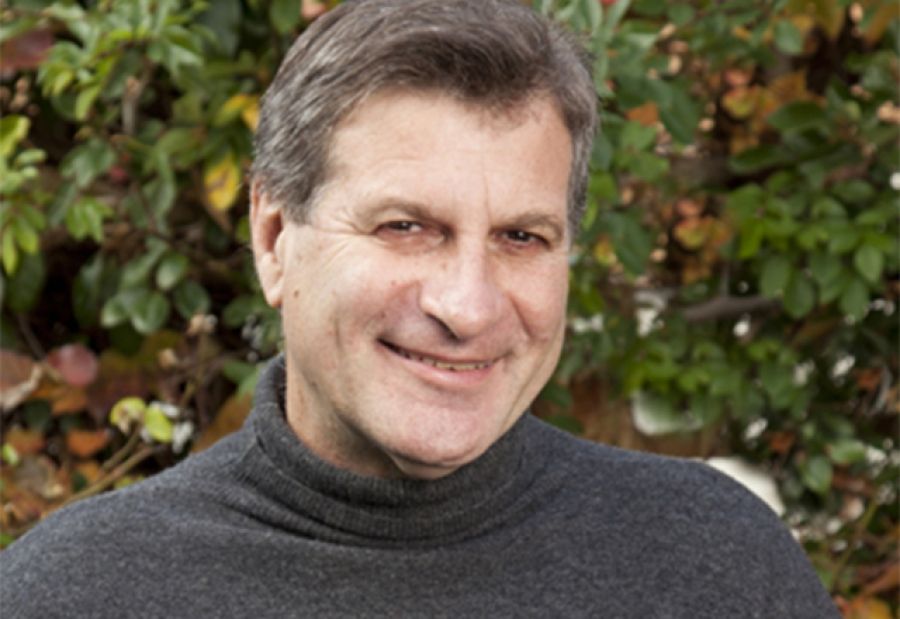
- Free Article: No
- Contents Category: Open Page
- Review Article: No
- Online Only: No
- Custom Highlight Text:
The idea for The Art of the Engine Driver came from a dream of my old street. It was so vivid – virtual, you might say – that I abandoned the project I had in mind and followed the dream.
Where are you happiest?
No place in particular. In my study writing, wandering around Brunswick and Lygon Street, running around Princes Park, getting on a plane for London or Paris (especially the 4ème or the 5ème). Although I’m essentially a city person, I like being in the French and English countryside – as long as there’s a village nearby. Cricket season was always a favourite time, too – especially practising in the nets, bowling for hours, working on things.
What is your favourite word?
Probably ‘and’. And I suspect that’s because I was always told never to begin a sentence with ‘and’. And then I read Hemingway. And every second sentence began with ‘and’. And, you know, it looked fine. Even swell.
Which human quality do you most admire?
Generosity.
Where would you like to have been born?
Exactly where I was – in Melbourne. It’s not, I suppose, a grand international city, but it’s my town and it always will be. I love being in cities like Paris, London, and Venice, but I wouldn’t want to have been born in any of them.
What is your favourite book?
Probably The Razor’s Edge, by Somerset Maugham, which I read when I was about eighteen or nineteen. I had never been much of a reader before, but that book turned me into one. I’ve reread it quite often since then.
And your favourite literary hero and heroine?
Probably Larry from The Razor’s Edge. Having been saved in the last days of World War I, he goes to Paris to live on the Left Bank and read philosophy. It sounded good. And Sarah Woodruff, from The French Lieutenant’s Woman – an unconventional modern woman, stuck in the middle of the nineteenth century.
What, if anything, impedes your writing?
Other work.
How old were you when your first book appeared?
Forty-two. I’d been writing for over twelve years. It was a long apprenticeship, but may well have been all for the good.
Of which of your books are you fondest?
When a book is finished, I move on to the next one and rarely look back – certainly not long enough to think in terms of favourites.
In a phrase, how would you characterise your work?
You’re asking the wrong person.
Who is your favourite author?
No one in particular – T.S. Eliot, Proust, Hemingway, Fitzgerald. I’m discovering some of Virginia Woolf’s lesser known books at the moment.
How do you regard publishers?
My publisher (HarperCollins) and I get on very well indeed. As for other publishers, I really don’t know.
What do you think of the state of criticism?
I was a theatre critic for ten years for the Sunday Age, and it’s a difficult job. But the least to be asked from any reviewer is to show respect for the author. Smugness (especially of the undergraduate kind) has no place in responsible reviewing.
If you had your time over again, would you choose to be a writer?
Yes. I started as a painter – but found I needed words. Became a musician in a couple of rock bands in the 1970s, but, ultimately, heard the call of writing. Mind you, I toy with the idea of buying my Rickenbacker back.
What do you think of writers’ festivals?
As long as you don’t take them too seriously, they’re fun. And they also take you to places you might not usually go – or cannot afford to go to.
Do you feel artists are valued in our society?
I don’t really think about it. In many ways, I just don’t care. But I do care a lot about writing.
What are you working on now?
A companion piece to The Lost Life – a novel about T.S. Eliot and Burnt Norton. This one revolves around Little Gidding.


Comments powered by CComment